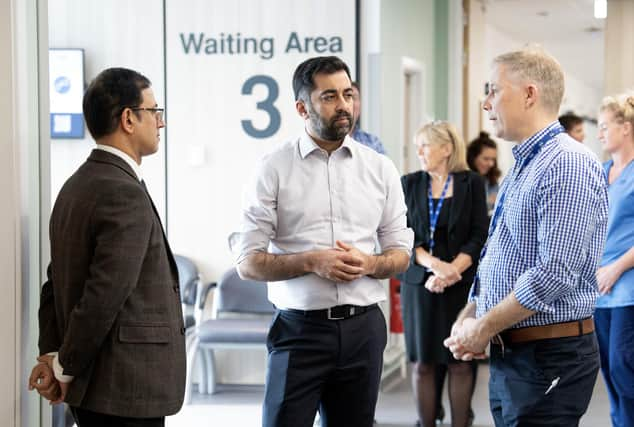Yousaf under fire as Scottish patient waits more than four years for diagnosis of neurodevelopmental disorder


Ministers have been warned about “harmful” long waits for diagnoses with neurodevelopmental disorders as new figures showed one patient waited more than four years to have their condition confirmed.
Data obtained using Freedom of Information showed a patient in NHS Ayrshire and Arran waited 1,518 days – about four years and one month – to have a diagnosis confirmed.
Advertisement
Hide AdAdvertisement
Hide AdThe figures, obtained by the Scottish Liberal Democrats, also showed a patient in the same health board area waited 1,293 days – more than three-and-a-half years – for a diagnosis of autism, one of the main types of neurodevelopmental disorder.
The data also showed an NHS Tayside patient had to wait 1,323 days to be diagnosed with a neurdevelopmental disorder.
As well as autism, such disorders can include communication disorders, attention-deficit/hyperactivity disorder (ADHD) and neurodevelopmental motor disorders, including tic disorders.
Raising the issue on world autism awareness day, Scottish Liberal Democrat leader Alex Cole-Hamilton said: “For parents and children waiting on a diagnosis to open the door to support services, these revelations will be depressingly familiar.”
He said that “inordinate waits” for diagnosis could be “particularly harmful for children with autism and neurodevelopmental concerns”.
Mr Cole-Hamilton added that waiting “delays a diagnosis that will be key to making sure they get the help they need in other aspects of their lives”.
Scottish Liberal Democrats have “repeatedly called for better support”, Mr Cole-Hamilton said, as he urged Health Secretary Neil Gray to “act to ensure that all those waiting get the help they need”.
Yesterday, Humza Yousaf pledged action to reduce the number of patients waiting too long for NHS treatment – announcing that £30 million will be spent to tackle the issue in the next three months.
Advertisement
Hide AdAdvertisement
Hide AdThe cash is part of £300 million the Scottish Government has promised to spend addressing backlogs in the health service over the next three years.
The initial cash will be used to reduce backlogs for treatment that built up during the Covid pandemic, including for orthopaedic treatment and diagnostic tests for those suspected of having cancer, as well as targeting patients who have suffered the longest waits.
It comes after official figures showed that at the end of 2023 there were 824,725 people in Scotland waiting for an outpatient appointment, tests or treatment.
Statistics from Public Health Scotland also revealed that as of December 31, there were 17,761 Scots who had been waiting 18 months or more for in-patient or day case treatment – including 7,179 patients who had been waiting at least two years while 1,446 patients had been on the list for three years or more.
The new investment comes as the Scottish Government estimates its action to tackle waiting times will reduce lists by 100,000 patients over the next three years.
Mr Yousaf announced the initial tranche of £30 million as he visited the National Treatment Centre in Fife, which was opened exactly one year ago.
The First Minister said: “As I set out last October, we are committed to accelerating treatment in our NHS and reducing inpatient and day-case waiting lists by an estimated 100,000 patients over the next three years, backed by planned investment of an extra £100 million annually.”
Comments
Want to join the conversation? Please or to comment on this article.